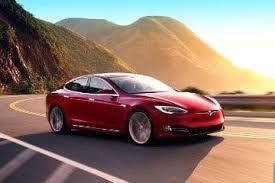October 2020 Sustainability + Renewable Energy News

 Renewable-energy hike: Council makes case for boosting Arizona’s standard
Renewable-energy hike: Council makes case for boosting Arizona’s standard
Renewable energy is a powerful solution to restoring economic security at a time when residents need it most. That’s why Arizona must get on a fast track toward modernizing our energy rules. In a move toward this goal, the Council has called upon the Arizona Corporation Commission to increase the state’s Renewable Energy Standard and Tariff (REST) to at least 50% renewable energy by 2030 and 100% carbon-free by 2050. Technology plays a huge part in this endeavor. Arizona’s innovation ecosystem is making electric and autonomous vehicles, testing zero-emission semi-trucks, building the solar grid, installing energy-efficient devices, flying electric airplanes, and making global advancements in water technology, just to mention a few examples. Read more >>
Arizona Corporation Commission candidates debate renewable energy
The six candidates vying for the three available seats on the Arizona Corporation Commission (ACC) touched on rolling blackouts, how to incorporate renewable energy and whether the Commission is still being influenced by the utilities it regulates. Three Democrats pushed the importance of increasing regulated utilities, use of clean energy and solar energy. Former Commissioner, Bill Mundell said he wants to make Arizona “the solar capital of the world.” The Democrat co-authored the state’s current Renewable Energy Standards during his prior tenure 1999-2009. He said studies show ratepayers, “have saved over $2 billion because of the renewable energy standard, because you don’t have to build big gigantic new fossil fuel plants, you don’t have to build transmission lines.” One thing most of the candidates agreed on, was that climate change is human-caused. The full debate which aired on Arizona PBS can be viewed HERE >>
A new age of energy dawns at Arizona State University
Today, more than 160,000 solar installations in Arizona produce enough energy to power more than 768,000 homes. ASU’s solar program provides more than 50 MWdc equivalent solar-generating capacity, which contributed to the university reaching its goal of becoming carbon neutral in 2020, with zero greenhouse gas emissions from campus operations. Here, we chronicle some of the major milestones in the history of solar energy development at ASU, revealing how the university has emerged as a national leader in the field. Read more >>
 APS sets course for 100% clean-energy future for Arizona
APS sets course for 100% clean-energy future for Arizona
Arizona is a beautiful place to live. Together, we can keep it that way. And Arizona Public Service (APS) committed to doing its part.The Arizona utility company has set a bold goal to provide 100% clean, carbon-free electricity to customers by 2050. The goal includes a nearer-term 2030 target of achieving a resource mix that is 65% clean energy, with 45% of its generation portfolio coming from renewable energy. In addition, APS will end all coal-fired generation by 2031, seven years sooner than previously projected. The company’s clean-energy plan will be guided by sound science and focused on achieving environmental and economic gains—all while maintaining affordable, reliable service for its customers. Read more >>
 City of Phoenix seeks input to fight climate change
City of Phoenix seeks input to fight climate change
The city of Phoenix is seeking community and stakeholder input on its draft Climate Action Plan (CAP) framework. The proposed plan will address the challenges posed by climate change and help make Phoenix the most sustainable desert city on the planet. Phoenix’s membership in the C40 Cities Global Climate Leadership network requires the city to develop a CAP. The draft CAP framework includes goals and specific actions for reducing greenhouse gas (GHG) emissions from various activities categorized in three areas: Stationary Energy, Transportation and Waste. It also includes Phoenix-specific topics, such as air quality, food systems, heat and water. Read more >>
 Arizona’s shifting approach to distributed energy
Arizona’s shifting approach to distributed energy
Arizona is one of the most solar-saturated states in the country, ranking fifth in overall solar capacity and third for residential rooftop solar. It’s also one of the hottest states in the country, with climate change pushing that heat to record levels this summer. This combination is pushing the Republican-dominated state’s energy policies in increasing alignment with its Democratic-controlled, solar-rich and climate-change-wracked neighbor to the west. Read more >>

Federal regulators watching Tesla’s new ‘self-driving’ software launch
Federal regulators said they were watching closely right after Tesla recently rolled out a beta version of its self-driving mode. According to a statement from the National Highway Traffic Safety Administration, which said it had been briefed on Tesla’s new feature, the “agency will monitor the new technology closely and will not hesitate to take action to protect (the) public against unreasonable risks to safety.” Tesla’s definition of self-driving capabilities does not mean that operation of a car can be completely turned over to a computer; rather, Musk has said that the technology allows for vehicles to operate autonomously, but still must be supervised by a human at all times. The much-anticipated release of the FSD service is about a year behind schedule and invitations to upgrade are going to a select group of Tesla owners. Read more >>
 A fair and responsible transition to clean energy
A fair and responsible transition to clean energy
An unprecedented energy transition is transforming the United States. Our electric grid is rapidly shifting away from fossil fuels toward sustainable power sources. The reason is simple: renewable energy is now one of the cheapest sources of electricity in most markets worldwide. In contrast, coal is now among the most expensive sources of electricity. According to Reuters News, more coal plants will have shut down during the Trump administration than during Obama’s second term. In contrast, renewable energy is booming. Approximately $2.7 trillion has been invested in renewables globally over the past 10 years, doubling its share of global energy generation from 5.9% in 2009 to 13.4% in 2019. Historic transitions like this can be exciting as well as disruptive. Read more >>
 Mercedes expands electric vehicle plans
Mercedes expands electric vehicle plans
Mercedes will focus on building cars for wealthier customers and cut a fifth of its costs over the next four years to finance new electric models, the German automaker said, as it seeks to catch up with U.S. rival Tesla. At a recent virtual conference for investors, the Daimler subsidiary said it would grow its super-luxury Maybach and G brands, as well as its AMG sports car division, and develop emissions-free versions of vehicles in those ranges. It also announced the development of a bespoke platform for small and medium-sized battery-powered vehicles, called MMA, which will compete with the architecture on which Volkswagen’s ID. 3 is built. Read more >>
 Leveraging the ocean’s carbon removal potential
Leveraging the ocean’s carbon removal potential
As the need for climate action becomes more urgent, the ocean is gaining attention as a potential part of the solution. Approaches like investing in offshore energy production, conserving coastal ecosystems and increasing consumption of sustainable ocean-based protein offer opportunities to reduce emissions. In addition to these opportunities, a range of ocean-based carbon removal approaches could help capture and store billion of tons of carbon. A few options for increasing the ocean’s capacity to store carbon may also provide co-benefits, such as increasing biodiversity and reducing acidification. If research efforts increase to improve understanding in these areas, a combination of approaches could help address the global climate crisis. Read more >>
 From cannabis to cars: 5 industries that might offer long-term investment potential
From cannabis to cars: 5 industries that might offer long-term investment potential
It’s hard enough trying to figure out where the economy and stock market might be headed in three months, let alone nearly a decade from now. Still, certain trends already are in place that might point to great investment potential many years down the road. Analysts at investment researcher Morningstar dusted off their crystal balls for a glimpse of where they see growth potential by 2030. Electric vehicles have made great strides in recent years, and that momentum will accelerate in the coming decade, said Morningstar analyst Seth Goldstein, who predicts one in five new vehicles sold globally by 2030 will be electric. Increasingly, electric cars and trucks will be able to travel farther on a single charge, and they will be able to charge more quickly — in five or 10 minutes compared with a half-hour or more now. In addition, more public charging stations will become available, making extended road trips feasible, and prices will come down. Read more >>
 APS authorizes $51.9M in energy-efficiency assistance
APS authorizes $51.9M in energy-efficiency assistance
The Arizona Public Service Company (APS) implemented a $51.9 million energy efficiency package this week, offering programs to help families and small businesses save money as they attempt to weather COVID-19. The measure was approved by the Arizona Corporation Commission, marking APS’s first approval in three years. Playing a big part in that was Arizona Corporation Commissioner Lea Márquez Peterson, who wrote to the company at the beginning of September to request that it utilize pending energy efficiency programs as a Customer Relief Package. In doing so, it could prioritize measures like limited-income home weatherization, energy efficient HVAC systems, and smart thermostats that would provide immediate short-term and long-term relief for those in need. Read more >>

Growing climate change concerns shine spotlight on renewable energy solutions
The world has been slowly shifting towards sustainable energy initiatives, with dozens of countries setting net-zero emissions goals, but wildfires raging across California and Oregon have only accelerated the public push for climate change action. Renewable natural gas (RNG) has emerged as a favorable carbon-cutting, clean energy solution among oil, gas, and utility companies because it is compatible with existing natural gas infrastructure and indistinguishable from conventional natural gas. In recent years, major energy companies have begun investing billions of dollars into clean-energy projects, while Greenlane Renewables Inc. (TSXV:GRN), a biogas upgrading systems provider, is offering turnkey solutions to help governments and businesses around the world meet their zero carbon goals. Read more >>
Valley electric truck maker files for six new patents
Mesa-based Atlis Motor Vehicles has filed six new provisional patents related to the all-electric work pickup and vehicle platform the company is developing. The company filed the patents as part of the development of its XT pickup, an electric work truck intended to have a 500-mile range that matches or outperforms the heavy-duty power, towing and rapid refueling capabilities of diesel-powered trucks. The patents cover battery tab design, distributed control of vehicle systems and use cases involving digital mirrors, route planning and towing intelligence. The new filings increase the company’s total patents to 16. Previous patent applications have covered the company’s battery cell, battery thermal management technology, charging technology, modular platform and other vehicle systems. Read more >>
